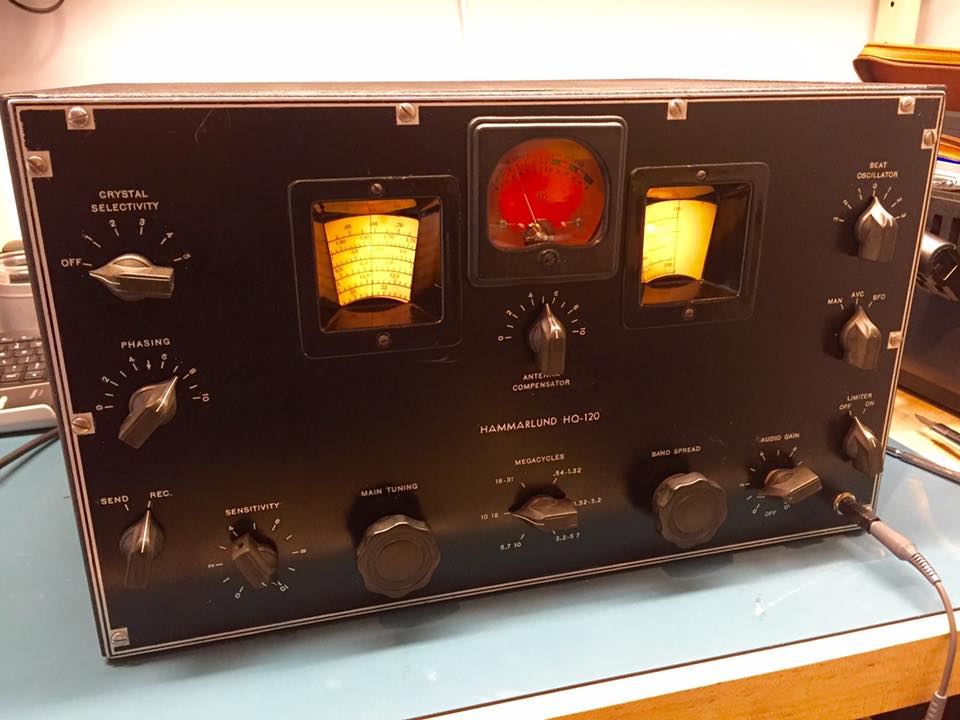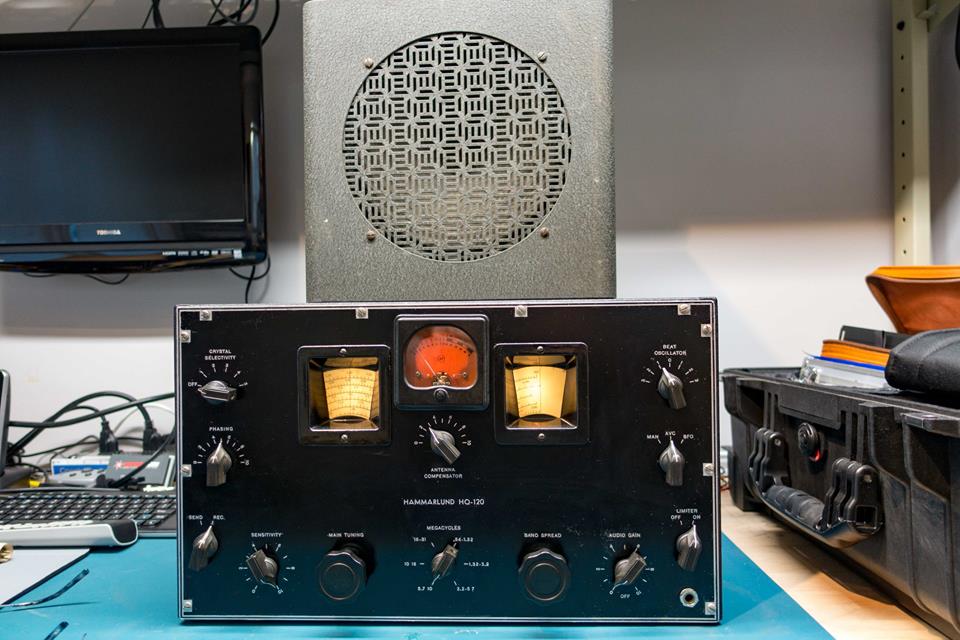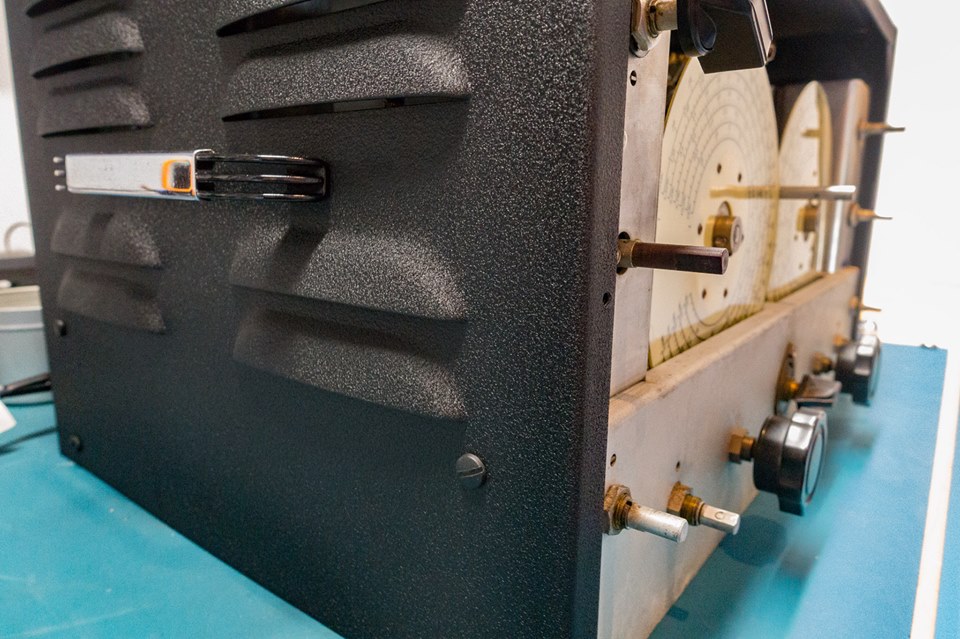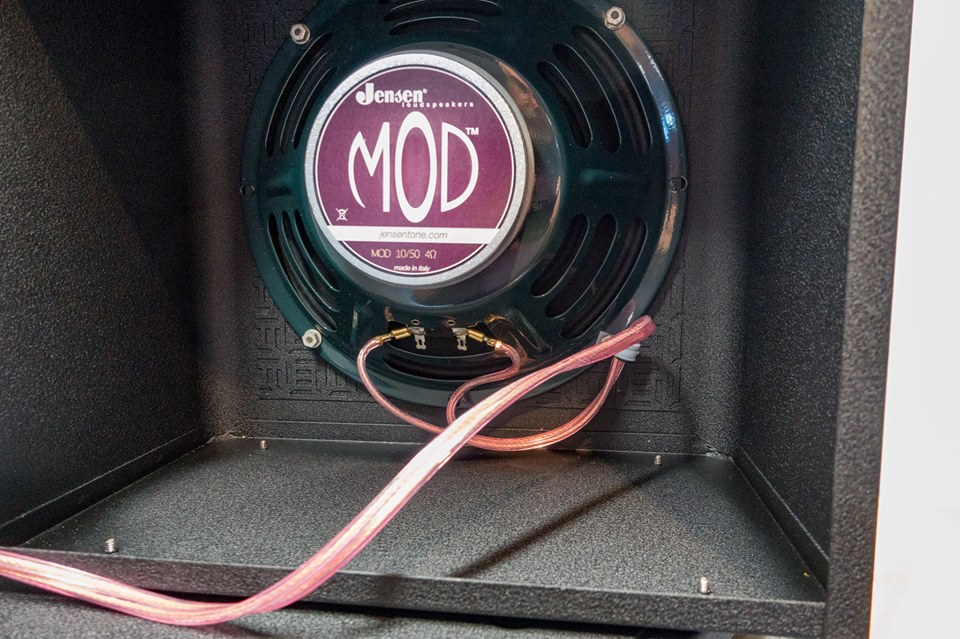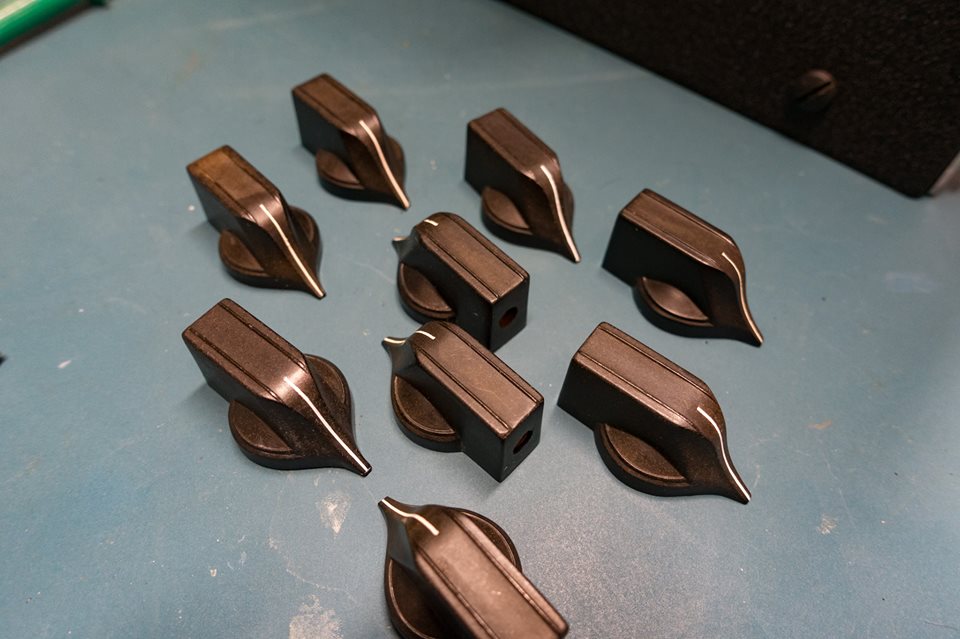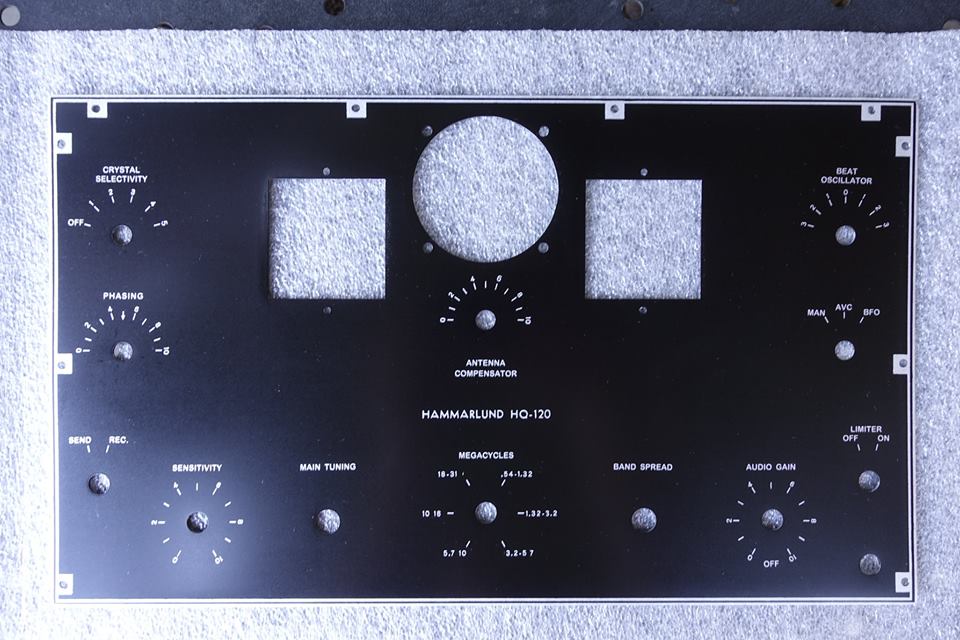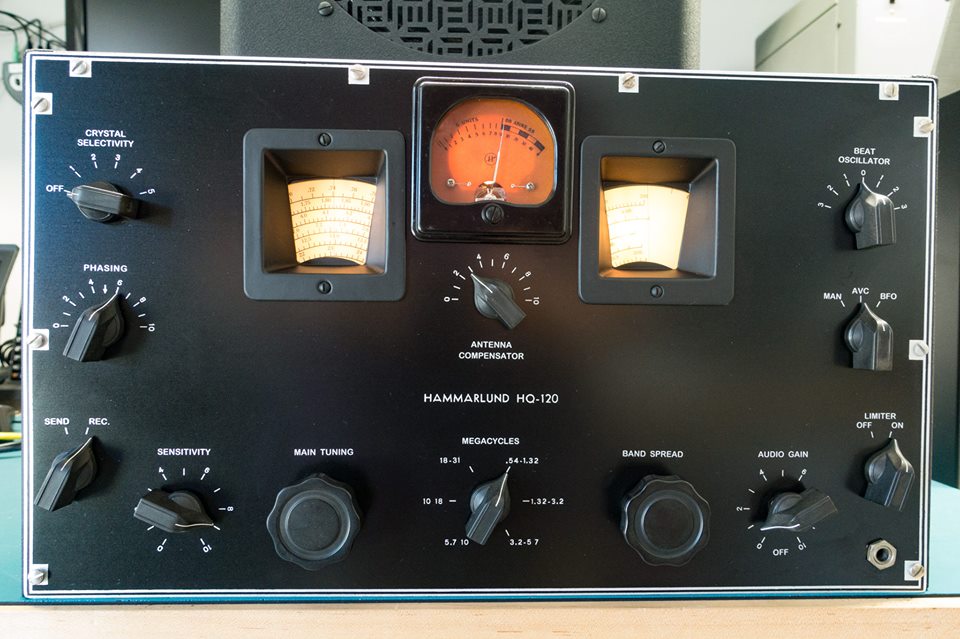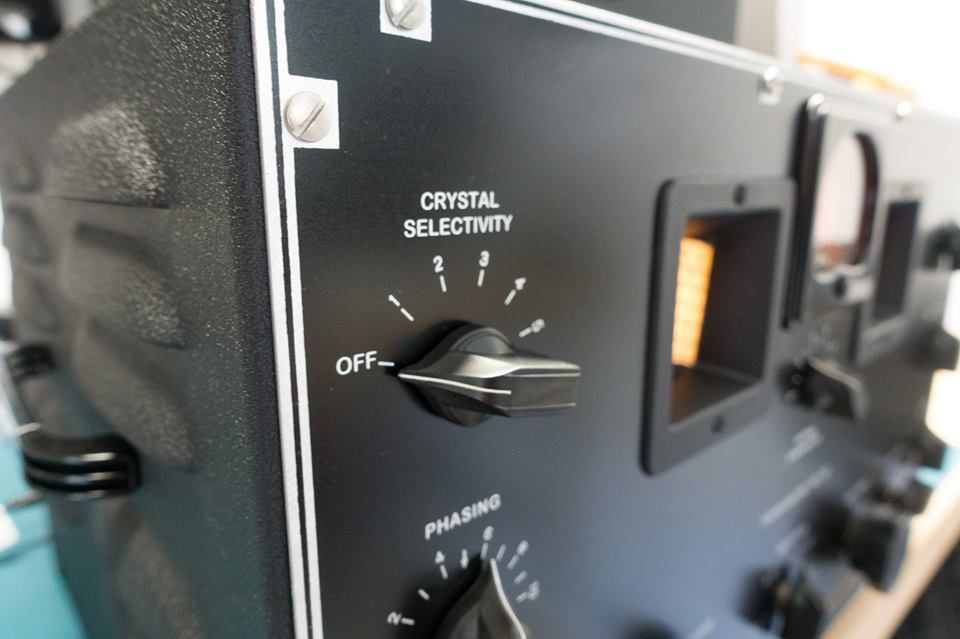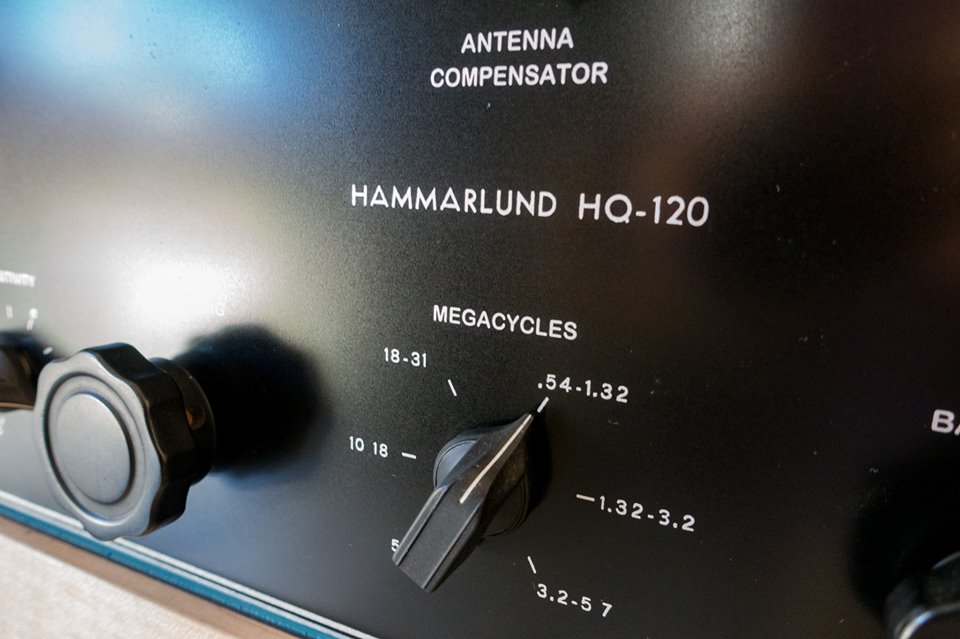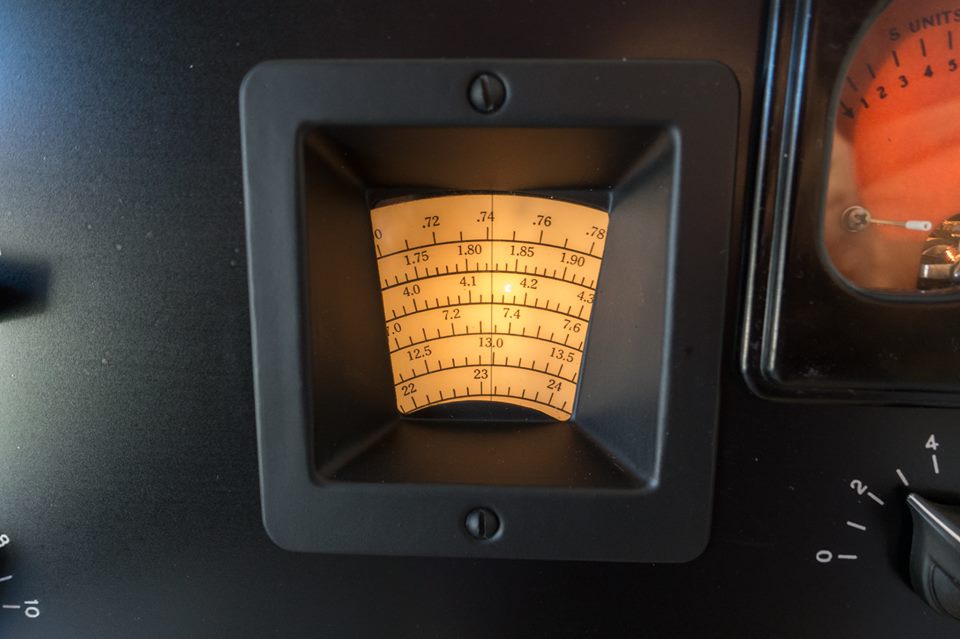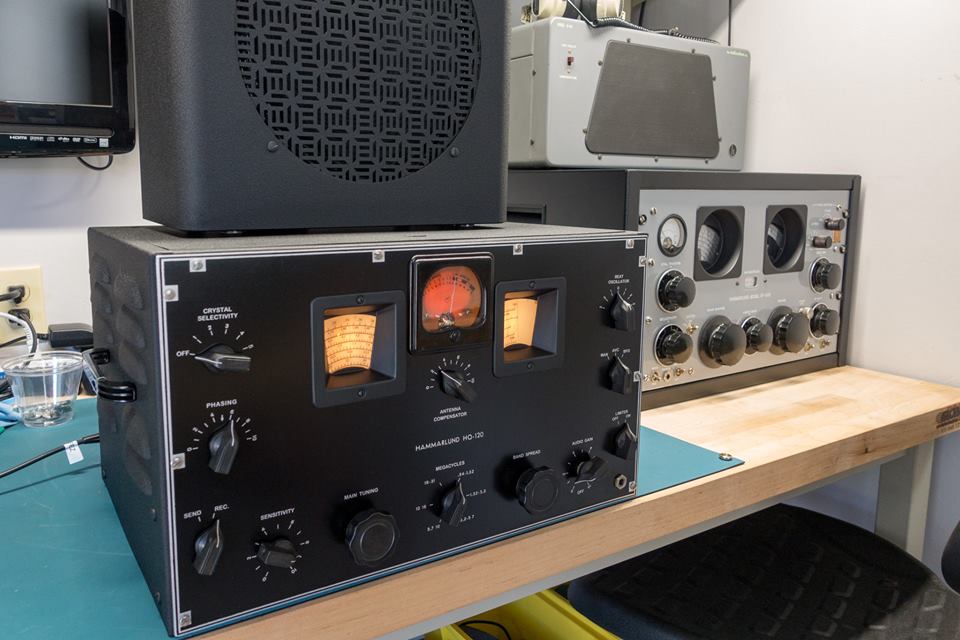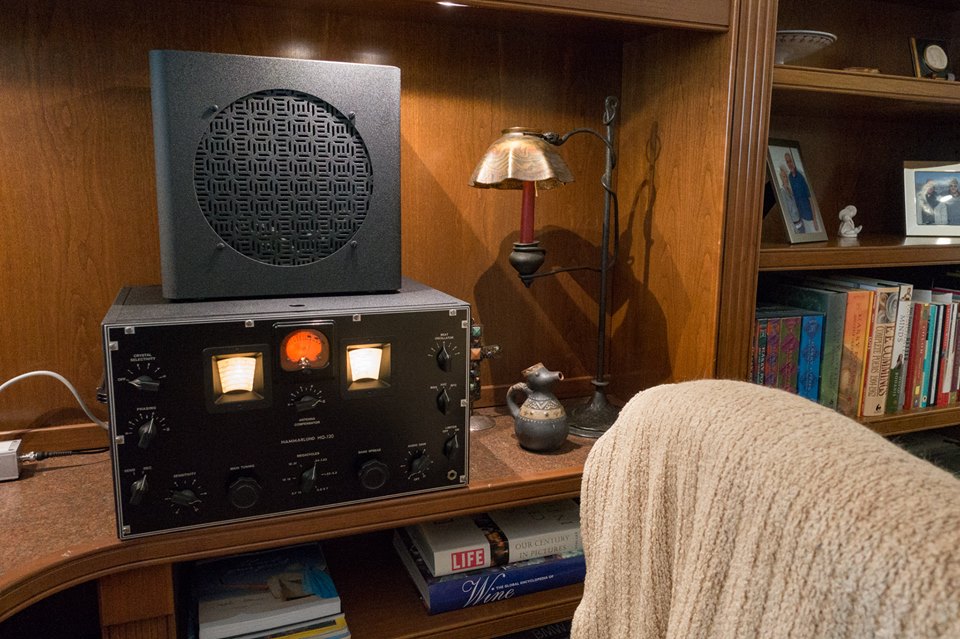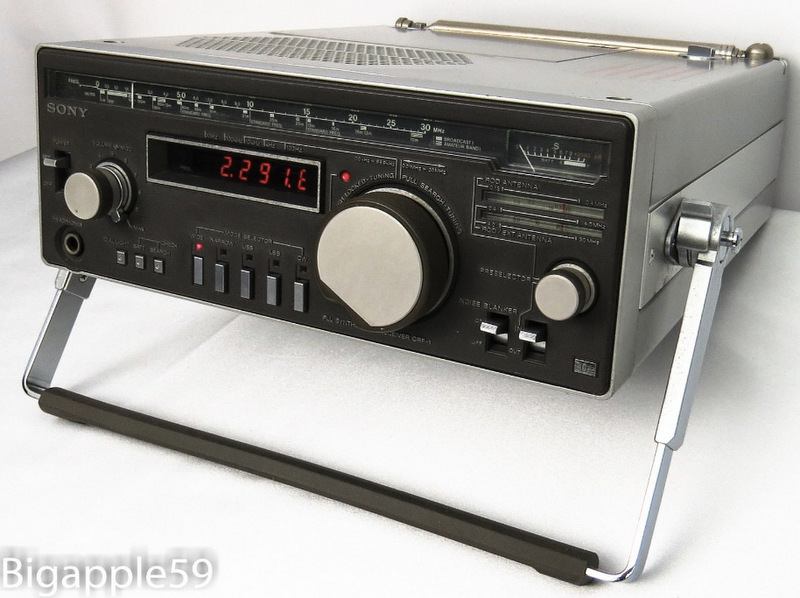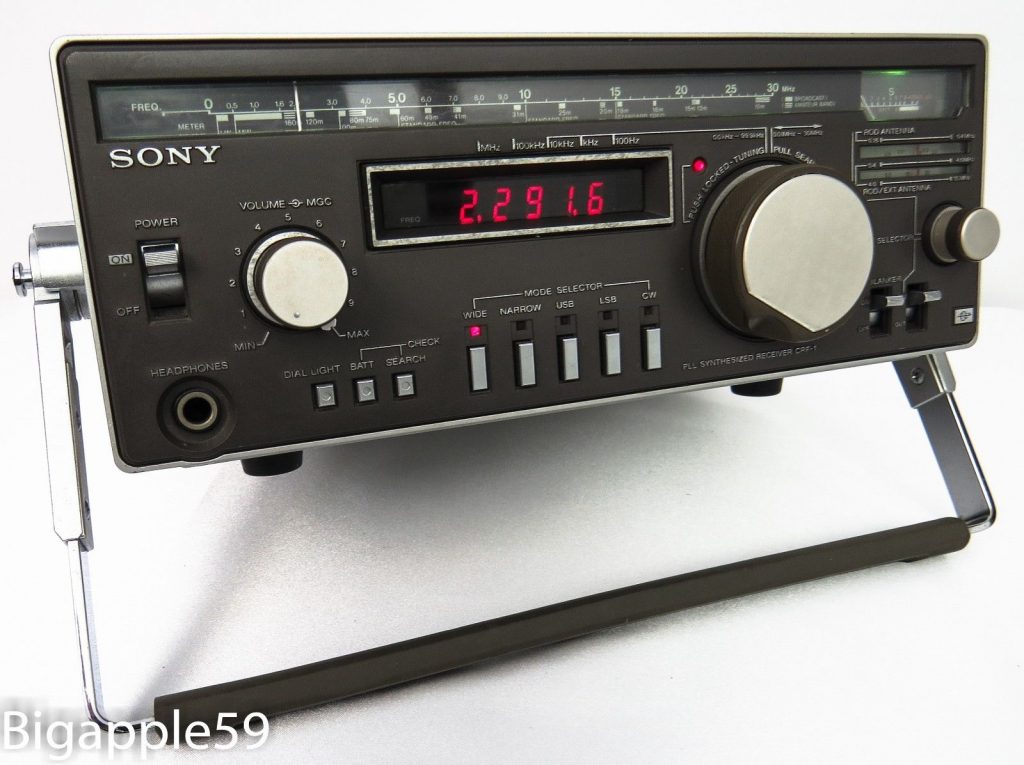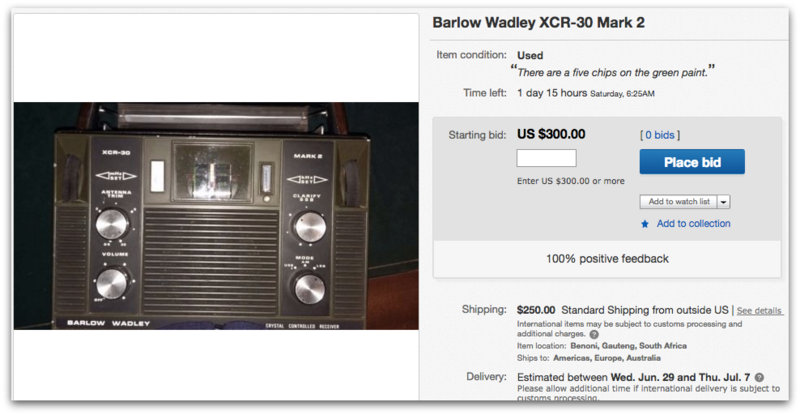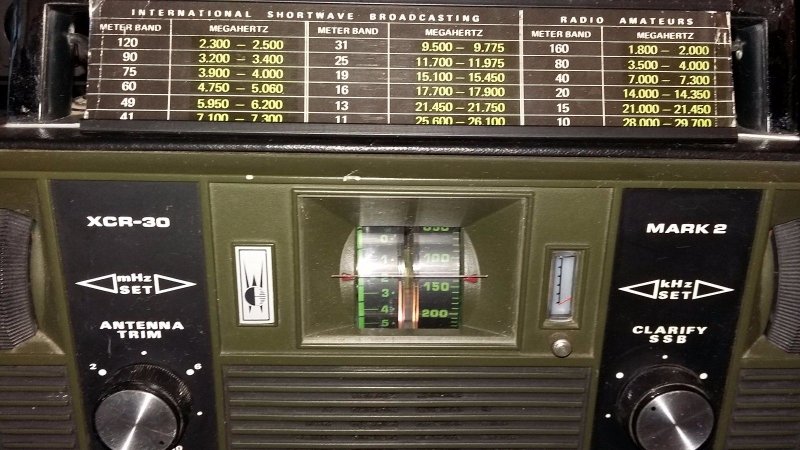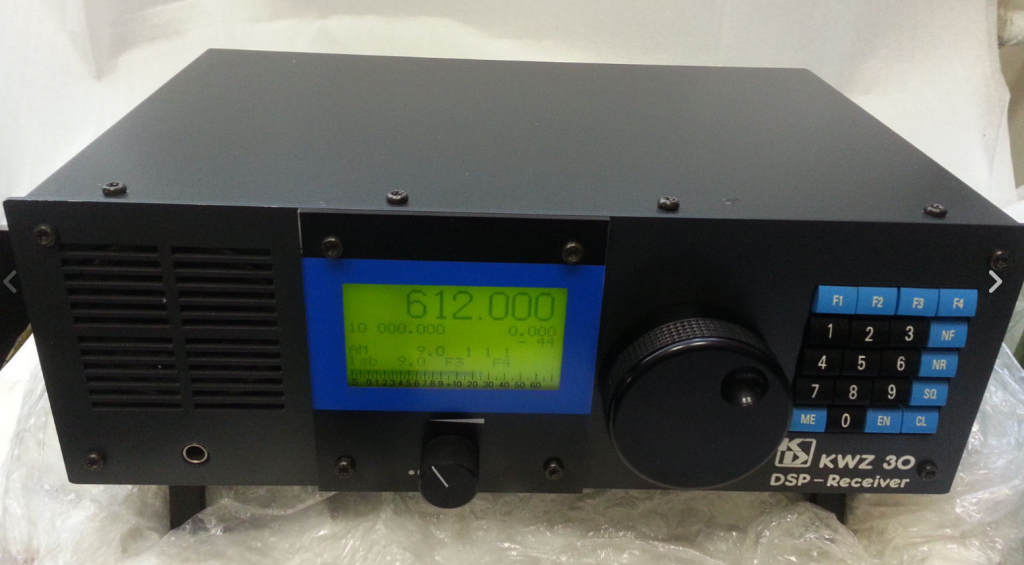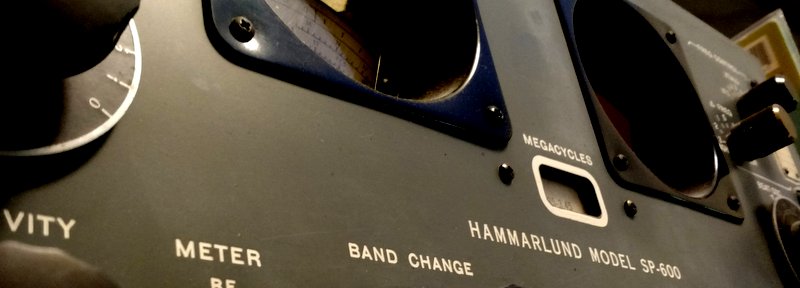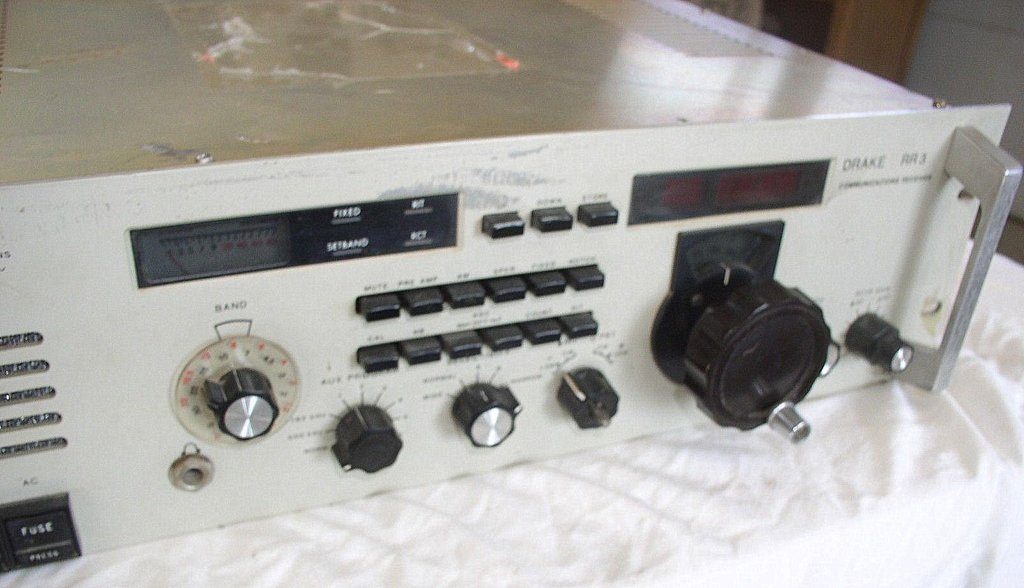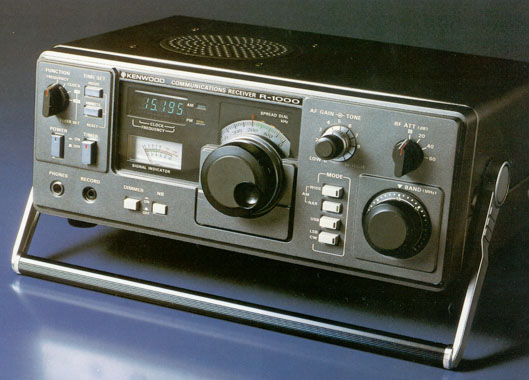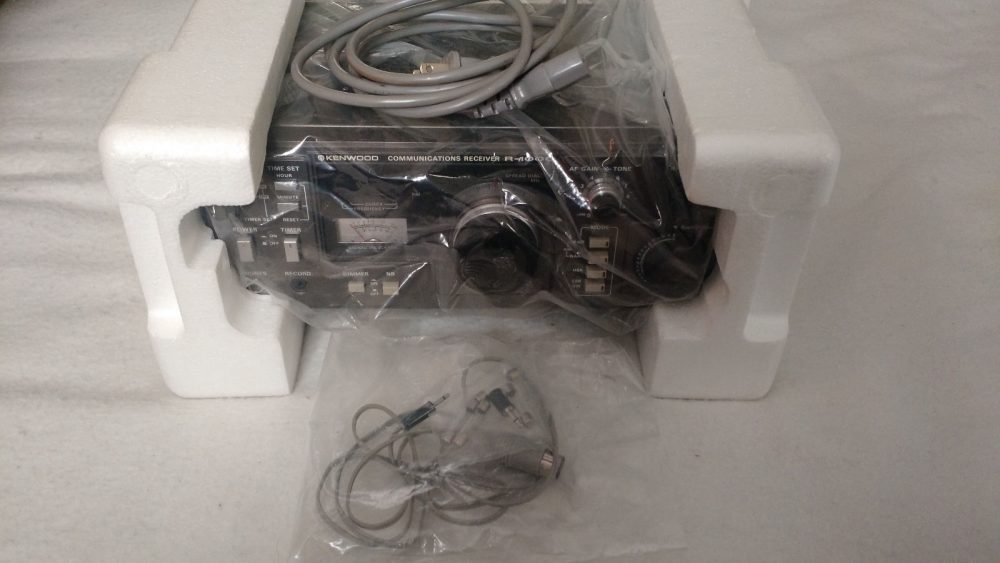Many thanks to Colin Snow for sharing the following photos and commenting on his Hammarlund HQ-120X restoration. I originally noticed his photos in the Extreme Shortwave Listening group on Facebook and he kindly wrote up descriptions for each image to be published here on the SWLing Post:
Hammarlund HQ-120X restoration
by Colin Snow
Purchased on eBay March, 2016. Hammarlund HQ-120X (1939 restored) and PSC/10 speaker (1939 original). The radio was frist restored by KE7RD, the collector who owned this unit for years. This was a late production version. It has 6K7’s instead of 6S7’s (good). The O/P TRANS has been replaced and an SO-239 added. It was recapped and aligned both IF + RF and works well on all bands.”
I had the cabinet repainted locally at NRI Sandblasting and Coating with a black semi-gloss crinkle powder coat paint. I cleaned the chrome part of the handles with Quick Glo and stripped and painted the two shoulders with black gloss enamel.
I had the speaker enclosure stripped and painted at the same time as the cabinet with the same black semi-gloss crinkle powder coat.
The original 1939 speaker was a 10″ Jensen. It worked, but I wanted the best possible sound. This current production model Jensen fit exactly.
White lines for the knobs were done using white out. The lines are grooved so I just gobbed it on and wiped off the excess.
I had the faceplate rescreened by Adam’s Precision Screen Printing, Inc. San Leandro, CA. They created a film positive first, then a negative screen.
It was a perfect job. The color and sheen matched original. This should last longer because it is an epoxy ink that has been baked to harden.
The lettering came out clean. Even though they made a 1.5X negative they still had to create artwork for the fonts. The original letters were just etched into to aluminum. It looked like it was done by hand.
Funny how words change. We now say “megahertz”, not “megacycles.”
I refurbished the dial windows myself. They were easy to strip and I used a flat black enamel spray. The S-meter glass was dirty so I disassembled it and cleaned with Quick Glo.
Still works after all that!
Its final resting place is my office and looks pretty good next to an original Tiffany’s lamp. I have a second listening post.
Colin, I can see that you spared no expense to restore this Hammarlund HQ-120X and it has paid off–an absolutely gorgeous job! I love how its “final resting place” is in a part of your office that gives it an appropriate amount of space–a place to be admired and, more importantly, enjoyed. I bet the 120 sounds simply amazing!
Thanks again for sharing these photos and your commentary, Colin!

